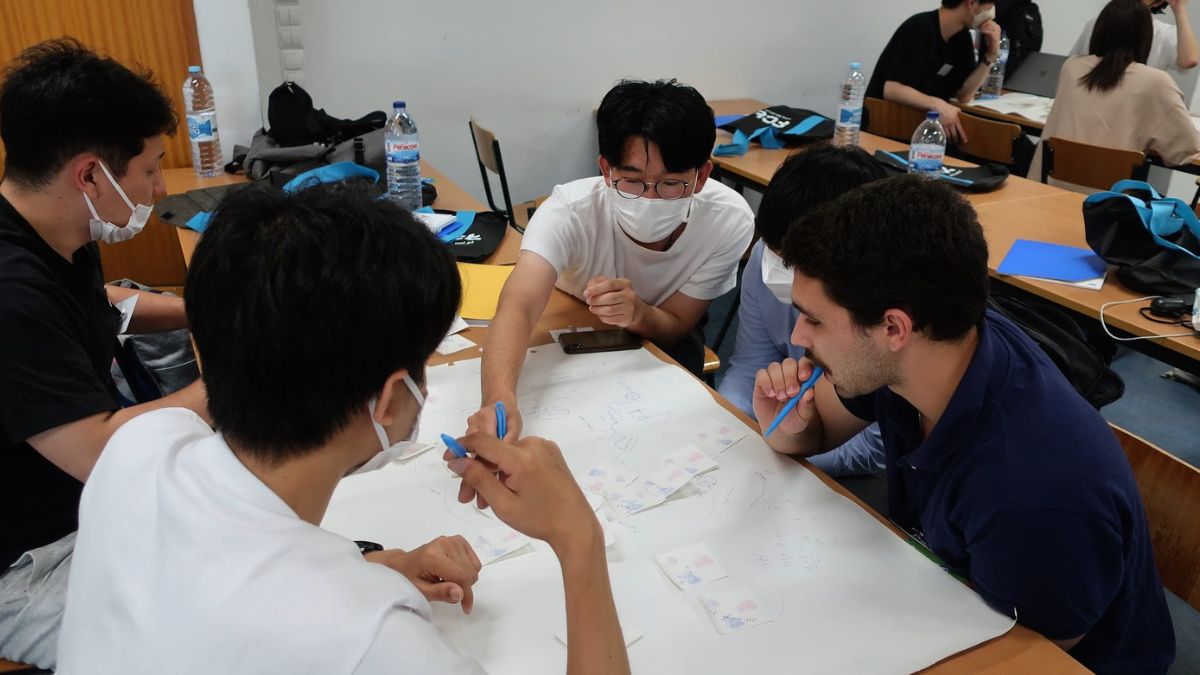The objectives of this program are related to the development of the ability to solve synthetic problems and the introduction to the concepts of “Systems Thinking”, “Systems Method (Engineering Method)”, and “Systems Management (Project Management)”. At a more theoretical level, it is intended that students have the opportunity to learn and apply some analytical techniques and tools, such as BrainStorming, KJ Method, Mind Map, Kano Model, Kando Quality, QFD, TRIZ, 5W1H, Logical Tree , Matrix Method, and A3 Material.
Right at the beginning of the program, the students were divided into mixed teams, made up of students of various nationalities and from different years and branches of degrees and masters and each of the teams had to build a problem-solving process, among the various ones indicated by the teachers.
This year, the winning projects were, in first place “Improve Communication between Government and People”, in second place “Reducing cigarettes on the streets of Lisbon and make it clear”, and in third place “Empty Houses”, a project that presented solutions to overcome the difficulties in buying a house in Lisbon, focusing on the renovation of abandoned and unlivable houses.
At this event, organized by Professor Helena Navas, in addition to the participation of students, we were also able to count on the participation and guidance of Professors Dai WATANABE & Manabu ICHIKAWA, both from the College of Systems Engineering and Science (SIT), Japan; as well as Professor Masahiro INOUE, from the Graduate School of System Design and Management at Keio University, also from Japan; Professor Suphanut Kongwat, from the Mobility & Vehicle Technology Research Center, KMUTT, Thailand; from Professor Alexandra Tenera from FCT NOVA, and 7 teaching assistants, students from SIT and FCT NOVA.
